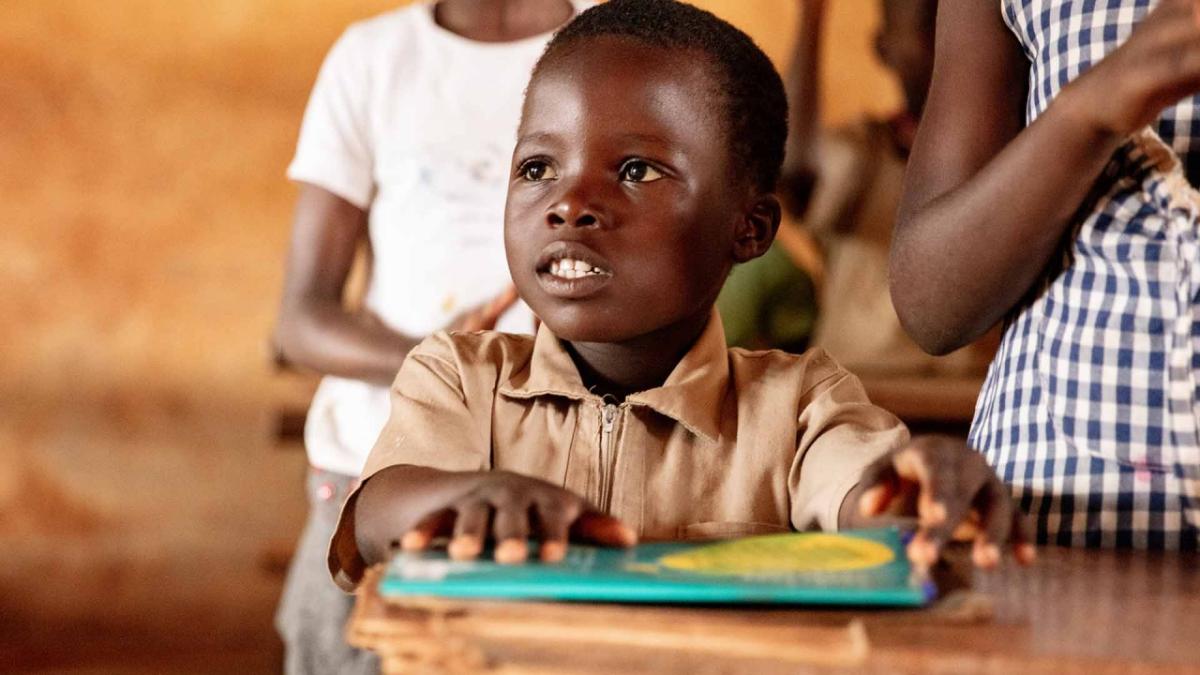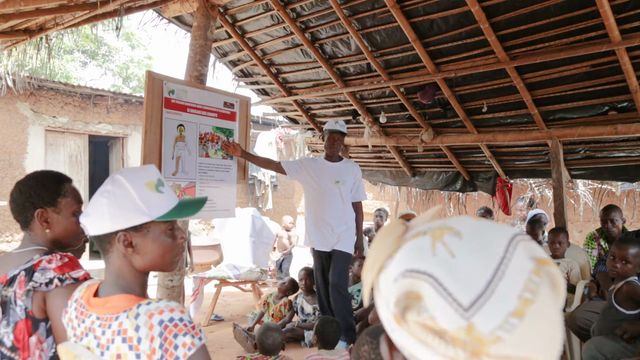Tackling Child Labor
Nestlé’s system to tackle child labor works, now we’re scaling it
By Darrell High, Head of Nestlé Cocoa Plan
I’ve headed up the Nestlé Cocoa Plan for almost 12 years, so I’ve seen firsthand how our Child Labor Monitoring and Remediation System, (CLMRS), works and how it has benefited kids and families in Côte d’Ivoire and Ghana. As demonstrated in our 2019 report ‘Tackling Child Labor’, it is making a real difference to the lives of thousands of kids and families.
Our system was successful in tackling child labor in just over half of cases in the 2019 reporting period. Strong progress, but now we’re going further.
What underlies the successes we’ve had, and how can we improve? Well, the system’s strength stems from the fact that we’ve built it from the ground up. Our 1,640 child labor monitors are all local people who themselves come from the cocoa-growing communities. They monitor over 78,000 kids in Côte d’Ivoire, and identify children at risk on our behalf. They work to find children at risk, help them, and then visit them regularly to see how they are getting on. We see about half of the kids coming out of child labor. This shows us we’re on the right track, but there is more to be done.
Working on family farms
Most cocoa-related child labor in West Africa involves children supporting their parents on family farms. Parents are often unaware that the work their children are doing even counts as ‘child labor’. Through community awareness-raising sessions and household visits, we help farmers distinguish between activities kids are able to perform, and those defined by law as child labor.
Sadly, we are still finding children doing unacceptable activities, 23% of children monitored, according to our report. Once we suspect child labor, or identify a child at risk, we work with the family and local community to provide tailored support. This ranges from education activities, to income-generating activities for families, to assistance with farm work. We have helped over 87,000 children both within and outside our supply chain.
While in many cases the support we have given has been successful, every child’s situation is different. The report shows that some cases of child labor are very difficult to resolve. To eliminate child labor for good we need to work collaboratively with industry, governments, NGOs and farmers and communities themselves.
Education is effective
Our experience over the last seven years has shown that education is particularly effective in preventing and reducing child labor. So improving access to quality education will continue to be a key focus of our programs. Since we started our program in Côte d’Ivoire in 2012 we’ve built or refurbished 49 schools to improve access to education for over 20,000 children.
In addition, ‘bridge schools’ are designed to help children who have missed out on schooling back into mainstream education. With small class sizes they deliver two years’ worth of the national curriculum in just nine months helping children become literate and numerate. We’ve built 98 of them with our partner, the Jacobs Foundation, and proved that they work well. So we will set up a further 60 bridging classes to help over 1,600 children.
Supporting cocoa farming communities’ livelihoods is also an important part of our strategy. We’ll continue to encourage income diversification and women’s empowerment, teach better farming practices and enable access to basic financial services.
Above all, we’ll continue to be driven by results, improve the system’s efficiency and innovate with new solutions. For example we’re experimenting with full-time, rather than part-time monitors, to allow them to cover larger areas. As we extend the system across West Africa, we’ll keep you posted annually on our progress – through our Nestlé in Society report, and on the Nestlé Cocoa Plan website.
I’m delighted that we will be sourcing all our cocoa for confectionery products through the Nestlé Cocoa Plan by 2025. The Child Labor Monitoring and Remediation System is a key component of the Nestlé Cocoa Plan where there is a high risk of child labor, so we will use CLMRS in all our sourcing from West Africa by 2025.
Our 2019 report shows that we’re on a journey. The system’s success shows us there is a light at the end of tunnel. We’ll redouble our efforts to reach it. The CLMRS is only part of the solution, but a key part. Working together, and following a holistic approach, I truly believe we can succeed.
Download the 2019 report (pdf, 4Mb)



